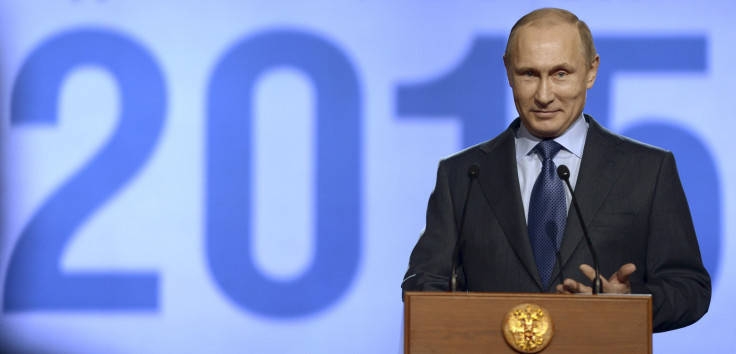Sans The Aid of Brain Scanners, Pentagon 2008 Study Claims Putin Afflicted With Asperger's Syndrome

Russian President Vladimir Putin has Asperger's syndrome, a study conducted in 2008 by a Pentagon think tank revealed. The study noted the Russian leader “carries a neurological abnormality,” with the autistic affliction affecting “all of his decisions."
It was the USA TODAY that obtained the report, under the Freedom of Information Act request. Mr Putin’s supposed affliction was contained in a 2008 study by Brenda Connors, an expert in movement pattern analysis at the U.S. Naval War College in Newport, R.I. Along with some colleagues, the report described Connors as “contractors” for the Office of Net Assessment, or ONA. The latter is an internal Pentagon think tank that “helps devise long-term military strategy,” USA TODAY said.
The study, performed in 2008 and 2011, cited Dr. Stephen Porges writing the conclusion. In it he reportedly said "Putin carries a form of autism." Porges is now a University of North Carolina psychiatry professor. On Wednesday, he denied ever seeing the finished report, further stressing he "would back off saying he (Putin) has Asperger's." Sans the aid of brain scanners, the report hinted Mr Putin’s “neurological development was significantly interrupted in infancy.”
But Porges did issue recommendation that U.S. officials consider dealing with Mr Putin in a setting that is more private or “quieter,” rather than corner him in large gatherings. "If you need to do things with him, you don't want to be in a big state affair but more of one-on-one situation someplace somewhere quiet," he said. Porges based his observations whenever he sees Mr Putin during large social settings. He said the behaviour and facial expressions of the Russian leader suggested someone who is defensive.
The report, which is one of several that Connors' team has done on Putin for ONA, said the Russian leader’s “primary form of compensation is extreme control," which "is reflected in his decision style and how he governs," the report said. Connors reportedly had been studying movement patterns for the Pentagon since 1996.
Since Mr Putin assumed the top leadership post of Russia, military experts and analysts had been monitoring and observing his every move and behaviour and how they eventually translate to the decisions he had made. "Today, project neurologists confirm this research project's earlier hypothesis that very early in life perhaps, even in utero, Putin suffered a huge hemispheric event to the left temporal lobe of the prefrontal cortex, which involves both central and peripheral nervous systems, gross motor functioning on his right side (head, rib cage, arm and leg) and his micro facial expression, eye gaze, hearing and voice and general affect," the report said.
Connors also went to compare Mr Putin with his predecessor, Dimitry Medvedev. She said the latter was an "action man," who "is inclined to size up situations quickly and to do so in black and white terms, shunning subtler shades of grey." Mr Putin, meantime, "has very different predilections," and "methodically cycles back to aspects of the problem facing him, continuing revising data to verify his research and confirm his priorities."
Connors described Mr Putin as a “private decision maker.” She said U.S. officials as well as other global leaders should not expect Mr Putin “to enter into public exchanges with others on information interpretation or a final course of action."
It is not known if the Pentagon and state department officials ever acted on or even used the information and recommendations of the study.






